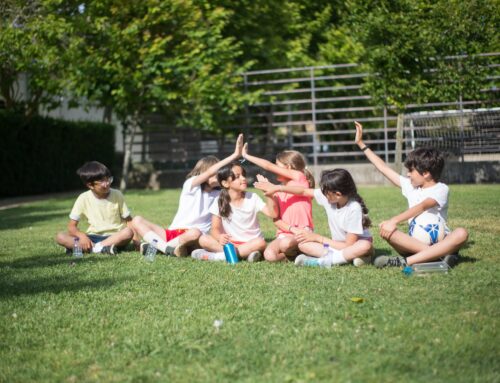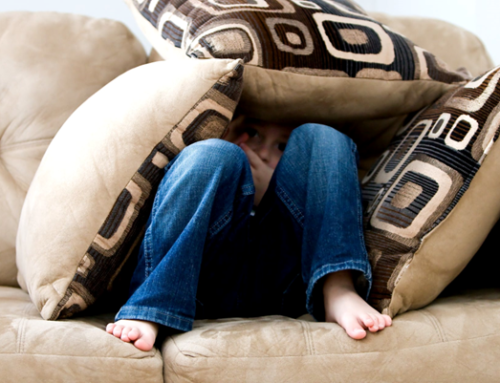Toddlers And Threenagers
For parents, life with a toddler can feel like living in a warzone. Toddlers are in a dynamic stage of their development. Research shows that kids at this age can make bids for our attention as frequently as every 20 seconds. No wonder we can’t even get a single thing like unloading the dishwasher done. As kids grow they want and need independence. It’s normal for them to ignore our reasonable requests and have tantrums for no apparent reason. Calm, predictable family life gets exciting when there is a toddler in the mix.
Toddlers Are Having A Problem, Not Being A Problem
What happens to our toddler when they are overwhelmed? They reach out to us for help, often in the most unloveable ways. Kids under stress will lash out, hitting and even biting. In the face of this provocation even the most zen parent can start to crack.
It can help to understand that the child is having a problem, rather than being a problem. Reframing the behaviour as a sign of difficulty coping is a way to help us feel empathy towards our children. Instead of judging them, we need to use the executive function part of our brain so we can help them feel safe. When we understand that they are having a problem not being a problem we can be helpful to our young person when they need us the most.

Words To Help Connect
Knowing that we’re helping a stressed out person can make a real difference. The words we typically use to stop unwanted behaviour are all about getting the child to change in an instant. This won’t work as they don’t have the ability to do it yet. What toddlers need in the moment is a big person (you) who is calm. This is why saying “Calm down” doesn’t work. When we choose a different perspective and say something like “You look like you could use a hug” it’s more effective in the moment.
As the experts on our children we have time to learn many different ways to connect with them. We don’t need to react to every situation and fix it in an instant. It’s with this sort of understanding that we can make the biggest impact. Kids who are helped in this way will be able to adjust. You can see it in their bodies as the stress comes off. Calm adults say this sort of thing:
“That looks very hard for you.”
“I can see you are having a problem with waiting for the scooter.”
“You really want the blue cup.”
How To Stop The Big Emotions
We can’t actually stop the emotions. It’s helpful to know that so we don’t waste our energy trying. Kids are allowed to have all the feels. Think about your home as a place to be aware of what is happening. This includes knowing about emotions. Over time we all need to learn how to control ourselves.
Instead of stopping emotions we can make changes to the environment. Parents can optimise the routines and rhythms of the day to their children’s needs. If children are having big outbursts, it can mean that we need to set our environment up in a way which suits our particular child better. It’s useful to consider the number of changes that happen in any given day. Some children are overwhelmed by too many changes or transitions in the day. For these children the outbursts or tantrums are a sign they are overloaded by too many demands. We can take steps to reduce the number of changes and this can help our child.
Toddlers Use Behaviour To Communicate.
Toddlers are just learning about the world and they can’t articulate their feelings well with words – so they use their behaviour to communicate. Parents need to teach children about their own feelings first before they understand other people’s feelings. A story from a parent about their toddler illustrates this:
“At day care 3 year old Sam kept pushing other children over. Sam pushed one particular little boy over a lot. This little boy was physically disabled. The parents were mortified when the teacher told them what was happening. Sam was told over and over again not to do this. The mum carefully explained that pushing people over is “mean”. He continued pushing despite the teacher regularly making him sit in the corner. Nothing worked until Sam’s parents tried another approach. They focused on talking to Sam about how the other child would feel when he got pushed and how Sam would feel if this happened to him. Sam stopped pushing other children over.”
Addressing the cause of the behaviour was essential so Sam could learn how to treat everyone at daycare well. No one had thought to talk to Sam about the effect of his behaviour on others.
“How do you think the boy feels when that happens?”
“How do you feel when people push you over?”
These words are powerful ways to encourage and develop EQ or emotional intelligence. Firm, loving boundaries that reinforce these skills and help create empathetic and kind adults. So next time your threenager throws a strop:
- press the “pause” button
- think about the cause of the behaviour. What is going on for that child? Are there skills that you need to teach?
- when things have calmed down, help the child to practice the skills
Kids experience the full range of emotion (just like adults) and they need to learn how to manage their emotions. Work with the child you have and focus on the main aim which is for them to feel safe.
Punishment Doesn’t Help Toddlers Learn
It can be tempting to give a toddler a punishment to try and stamp out poor behaviour. Many parents are worried that unless they nip it in the bud their child will be out of control. The reality is that when we punish kids it doesn’t do what we want it to. Young children don’t understand the purpose of punishment and it doesn’t give them the skills they need to do the right thing. Instead of reacting to an event which was triggered by stress with a punishment we can work out the underlying causes of their behaviour. Over time we can teach toddlers it’s ok to have feelings. We can teach them what to do instead of lashing out or biting. It takes time and patience for maturity to develop. The aim of discipline is to teach them how to make a better choice. It’s very different from punishment. By helping kids understand their own emotions we help them develop the skills they need to become the adult they are capable of being.





